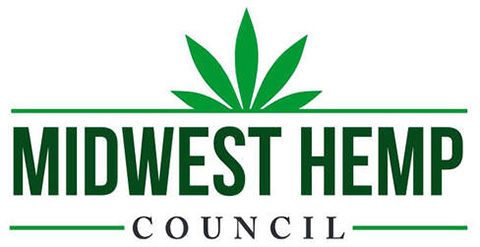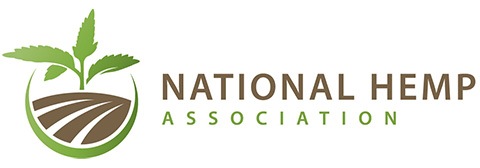


Hemp Benchmarks recently spoke with several processors making hemp-derived CBD products for their perspectives on supply, prices, and other dynamics affecting the wholesale hemp-cannabinoid market.
“We have not seen the bottom yet,” Andy Au, CEO of Oregon-based Octave Labs, told Hemp Benchmarks when commenting on hemp product prices this season. Octave Labs is a hemp extraction facility that processes about 4,500 pounds of biomass daily for distillate and isolate. Au said his company works with about 40 to 50 hemp cultivators each year, from farms in Oregon, Montana, and Colorado. Octave Labs also sells hemp products in at least seven states, as well as in Canada and Ireland.
Au noted that while sales have been very consistent in 2021, prices continue to tumble. With hemp isolate, for example, he said, “we’ve seen the numbers go from $500 a kilo down to $310 per kilo, just this year.” Au cites the glut of hemp biomass generated in 2019 as a major factor in the price drop. “There’s still millions of pounds out there,” he said. While some of that biomass is still in good enough condition that Au’s company can process it, a lot of what he sees now is brown and moldy. “We turn away more than we [take] from growers,” he said. “We turn a lot [of hemp biomass] down.”
In North Dakota, Veronica Michael said her company has enough biomass to get through next year. Michael is CEO of North Dakota-based Prairie Products. The company specializes in cold ethanol hemp extraction, producing full spectrum, winterized crude CBD oil. It also has a line of topical creams, tinctures and tablets, and it works with growers in North Dakota and Minnesota.
She is concerned about what the market will look like starting in 2023, especially as hemp prices continue to drop. “When we first started extraction [in the spring of 2019], crude had been around $1,400 [per kilogram],” she remembered. “I got a call from two buyers in the last two weeks. One was in Colorado and one was in Washington. Both were offering from about $80 to $120 [per kilogram] for crude. That’s ridiculously low. When you look at distillates and isolates, the numbers aren’t good either. People want to buy distillates and isolates for less than we can make them for, unless you’re a really big producer. It makes me nervous and scared for the future.”
Michael is one of many in the hemp industry who remains frustrated by Washington’s lack of progress in regulating CBD. “I would like the federal government to, one, let CBD in like other supplements we’ve seen … and get moving on that, because that’s holding back large companies from adding this ingredient,” she said. “I also have been disappointed at the pace; it’s just been a very slow movement, but I also understand that. We were hit with a pandemic in the middle of that, and that changed everyone’s focus.”
Rising COVID-19 cases and hospitalizations, driven primarily by the Delta variant, have prompted many people and companies to return to the social distancing and quarantine protocols seen in 2020, when the outbreak first gained international momentum. In Oregon, Andy Au noted that all his employees have been vaccinated and they work in a “huge space,” yet the pandemic is still impacting business.
“One of the mitigating factors for the CBD industry not taking off is COVID,” he said, “because a lot of the people that were planning to come out with products and a lot of businesses in the CBD sector weren’t allowed to conduct their business in a normal manner.”
Veronica Michael in North Dakota said the outbreak is still affecting work there as well. “It stalled things for us,” she noted, “We were just getting started, coming out of our first year, trying to make relationships and contracts, and many companies just stopped work. One had serious issues just getting containers and packaging. We lost almost a year-and-a-half of time. We are still sloshing through it.”
In most industries, larger firms will acquire some smaller, successful competitors, while also absorbing companies that fail to succeed. Brett Eaton, CEO and founder of Green Cherry Organics in Fort Collins, Colorado, says such consolidation is needed to push the hemp industry forward. “A lot of the regulations that are coming are going to be expensive to a business,” he said. “It’s going to be critical, especially for small businesses, to understand how to navigate that, with all these regulations being cost-prohibitive.”
Eaton noted that hemp businesses are subject to regulatory and testing requirements similar to those applied to the high-THC cannabis sector, which gets better prices for its plants, “so it puts pressure on the hemp industry, since we don’t have a market like marijuana. People need to consider that and tamp down their expectations of this industry.”
In Oregon, Andy Au said that, despite many hemp farms folding up their businesses, he is not seeing any signs of consolidation. “There are no ‘big fish’ coming in here to do any mergers,” he observed. “Most of the labs and the growers here that we know have completely gotten out of the industry.”
Despite all the frustrations and setbacks, the hemp industry executives we spoke to plan on staying with their work for the long run. “It’s definitely been high peaks, low valleys, a lot of volatility in the industry,” said Brett Eaton, “because not only the newness of the industry but the players in the industry. I think it’s very highly competitive … right now, and you’ve got to have a path for differentiating yourself, focused on quality. There’s a lot of high stakes in the industry, everybody looking for their niche. You need to focus on quality and making sure of your longevity.”
“I’m concerned that, in this marketplace, there’s no differentiation in quality,” said Veronica Michael. “We’re doing the right thing by requiring testing from growers, making our batches, putting out high-quality material, but we’re being undercut by imports or people in the U.S. who want to sell that same product at rock-bottom prices. So unless either the consumers demand quality or the industry does the right thing, we’re kind of in a strange position.”
That being said, Michael thinks there is still great opportunity in hemp once it becomes more established and regulated. “The expectation is that we all will follow the rules and we’ll all have a commitment to quality, to clear and accurate documents,” she said, “but I also think it’s the beginning. Think of this as a burgeoning industry, and we’re building a lot of the structures that will make it possible. But it’s not a quick turnaround.”
Andy Au with Octave Labs said that while he has trouble being optimistic about the hemp industry right now, he still expects it to have a bright future. “The CBD industry has so much research left to be done, so many more cannabinoids to be found. It’s exciting still,” he said. “The medical benefits of cannabinoids need to be researched some more … . We just need time.”


